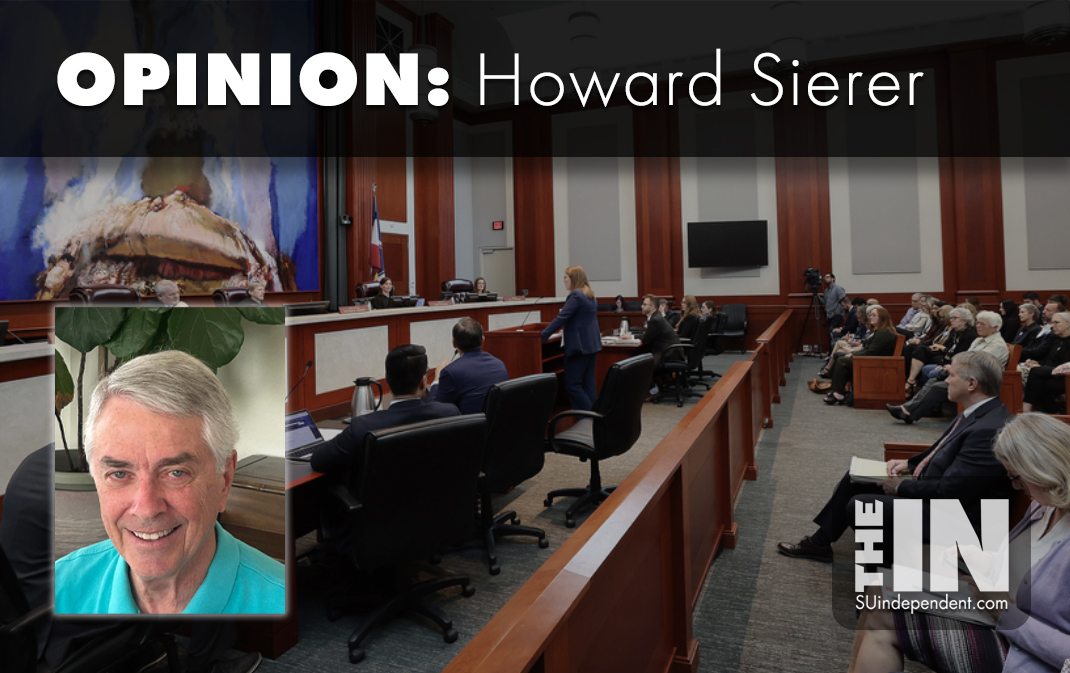
Yes, On Utah’s Constitutional Amendment D
– By Howard Sierer –
The Utah Supreme Court’s recent decision restricting the legislature’s ability to make changes to laws enacted by initiatives opened the door to single issue initiatives making a mess of our state priorities and our state budget. And now that same Supreme Court won’t even let us count our votes to overturn its decision. Welcome to judges, not the people or the legislature, establishing our laws.
To see the mess the court has created, look no farther than California and Arizona that similarly restrict legislative changes to citizen initiatives and as a result are flooded each year with a grab bag of special interest requests: California has 14 citizen initiatives on its ballot this year, Arizona has 11.
Kelsey Piper of Vox says that if there are more than two or three initiatives, “a system that funnels lots of issues, both big and small, directly to the voters leads to bad policy judgments, because under-informed voters don’t have time to research and form opinions on all the issues. It leads to a handicapped legislature that can’t do its job, because large sections of state law are untouchable.”
With our Supreme Court’s ruling, Utah can expect the same, including initiatives supported with a lot of out-of-state money hoping to enshrine special interest views into essentially unchangeable Utah law. In a matter of a few years, our legal landscape will be littered with unchangeable obstacles to common sense that seemed like good ideas at the time.
Got a special interest? Maybe one that won’t stand up to scrutiny in the legislative process? Doll it up with publicity and populist slogans that hide its true purpose. Then gather enough signatures to put it on the state ballot as a citizen initiative.
How about a few hypotheticals?
Commercial interests propose a revised medical marijuana initiative with vague definitions of what is a medical necessity or who determines it. Once passed, enterprising retailers open pot shops for all, whether they have legitimate medical needs or not. Determining their legality, the courts – not the people or the legislature – must rule on the initiative’s vague language, taking a year or more of judgments and expected appeals.
A housing initiative for homeless persons is passed by initiative with a 0.1% sales tax on non-food items to fund it. The funding turns out to be woefully inadequate to meet the initiative’s criteria as interpreted by the courts and the legislature has no choice but to cut spending on schools or other core priorities to cover the shortfall.
The common sense constitutional Amendment D on our ballots this fall would have kept the state where we’ve been for over 125 years. Initiatives approved by a majority vote of the people would be like any other law: subject to modification by the legislature. Initiatives would not enjoy a special status halfway between a law and a constitutional amendment.
Opposition to Amendment D was focused entirely on one initiative: the 2018 Better Boundaries initiative passed by a narrow 52% of voters. The legislature overrode recommendations of the newly-established congressional boundaries commission, instead approving a clearly partisan boundary configuration.
But Amendment D is not a partisan response to congressional boundaries alone; future initiatives can come from either conservatives or liberals. Initiatives are not required to be consistent with balancing the budget, with allowing continued support for existing prioritized services and programs, or with existing commitments and laws. A single-issue initiative subjected to very limited modification by the legislature is a bull in the state budget china shop.
We have been bombarded with claims that the amendment would take away the people’s right to pass initiatives and that the legislature would oppose voters’ interests. Don’t believe any of them.
For example, former Salt Lake City mayor Ralph Becker defends the Supreme Court’s ruling, saying “So the Legislature can [still] make changes, they just can’t ignore what’s the clear will of the people.” The problem is defining “what’s the clear will of the people.” Who will decide? It won’t be “the people” and it won’t be the legislature; it will be the courts.
Example: the will of the people has been slapped down by the same state Supreme Court that created the mess. The court has now ruled that the amendment itself was not properly submitted by the legislature and hence, while the amendment will still appear on the ballot, the vote of the people will not be counted. Judges, not a vote of the people, are deciding what our constitution and laws should be.
Even the slightest change made by the legislature to an initiative could be subject to legal challenge in today’s litigious environment. The legal entanglements will be endless: witness challenges these days by the environmental left to government actions seen as adverse to its environmental ideals. Resolution can take a decade or more.
The will of Utah’s people is established every two years when we vote to elect our legislators. Turning around and portraying our legislators as “enemies” of the people’s will defies reason.
I join Utah’s Sutherland Institute that wants to avoid what it calls a “nightmare scenario” where an initiative turns out to have obvious negative consequences but can’t be remedied in a timely fashion by the legislature.
I don’t want to turn law making over to the courts as they have in California. Keep Utah, Utah.
Viewpoints and perspectives expressed throughout The Independent are those of the individual contributors. They do not necessarily reflect those held by the staff of The Independent or our advertising sponsors. Your comments, rebuttals, and contributions are welcome in accordance with our Terms of Service. Please be respectful and abide by our Community Rules. If you have privacy concerns you can view our Privacy Policy here. Thank you!
Click here to submit an article, guest opinion piece, or a Letter to the Editor




